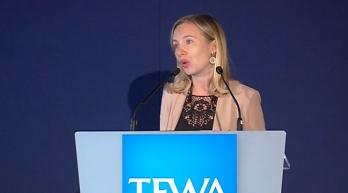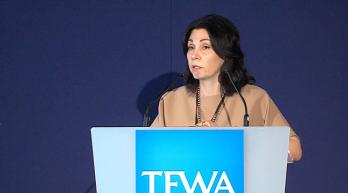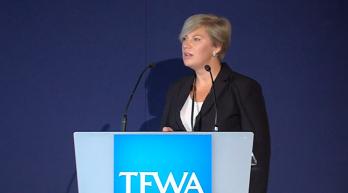

The Market Watch: Russia workshop at this year’s TFWA World Exhibition & Conference highlighted that the challenges facing the country’s duty free and travel retail market are complex, but not irresolvable.
The latest figures from Generation Research show that the market declined by an alarming 36.8% last year, prompted by a dramatic fall in the value of the ruble, as well as a decline in travellers to key travel destinations such as Egypt and Turkey.
Irina Kulikova, manager of Bain & Company, Moscow, outlined the changes in the Russian economy that were underpinning these statistics. The country’s GDP fell by 4% in 2014, although modest growth of between 1.5% and 3% is expected until 2020. Recent inflationary pressures have meant that real disposable income has not grown in real terms, causing consumers to cut back on all spending except on utilities and food. Confidence has also taken a deep dive since 2014, further curtailing consumers’ propensity to spend.
Russian consumers are tending to travel less, explained Kulikova. In 2014, the number of trips taken by Russian travellers fell by 20%, although a modest recovery is now under way.
Sanctions imposed by the EU and US, coupled with multiple bankruptcies in the travel sector and the ban of travel between Russia and Ukraine, have all taken their toll. Terrorist attacks in Turkey and Egypt meant that Russian tourists were prevented from visiting these countries, adding further pressure.
This also means that while some countries lost traffic, others gained. Those that suffered most are European countries, while China, Thailand, Spain, Greece, Georgia, Cyprus, Bulgaria and Tunisia all experienced an upturn.
Travel within Russia itself has also increased, with travel to the Olympic venue Sochi, for example, up 40% in 2015.
Following Kulikova’s presentation, Furla’s general manager for Russia and CIS Denis Shundrovsky said that retail sales were showing their worst growth in 25 years. He also shared a telling example of racing inflation. A kilo of bananas costing 30 rubles in 2014 now costs 80 rubles. Income is, however, not rising at the same rate, and Russians can no longer afford what they could previously.
But there are ways to tackle the situation. Leading Russian department store Tsum recently launched a campaign called Milan Pricing, which guaranteed shoppers prices matched with the leading shopping centres of the world including London, Milan and Dubai. Some brands tripled their turnover, demonstrating that the Russians are still ready to buy when prices are reasonable.
Outlining the approach of Furla specifically, Shundrovsky said that the company understood that people would no longer purchase without discrimination. Furla is now seeing a shift from luxury customers to affordable luxury customers.
Russian customers are however still hungry for something special, he concluded. They do still remember their luxury experiences of the past, which means that they now want a luxury experience at an affordable price.
Eurasia Duty Free Association Executive Director Fatima Dzoblaeva updated delegates on one of the most significant new developments in the duty free market in eastern Europe: the provision for arrivals duty free in the new Customs Code, set to be ratified in December by Russia and its partner
countries in the Eurasian Economic Union. Dzoblaeva noted that the sector is already seeing the benefits of the launch of various government programmes designed to encourage inbound tourism and investment in major infrastructure projects. While the trends in outbound tourism are not positive, inbound tourism has grown by 5%, mainly fuelled by the increase in passengers from Asia Pacific. This adds to the potential for the arrivals duty free market in Russia, with the first stores expected to be in place by late 2017 or early 2018.
Download the press release:



